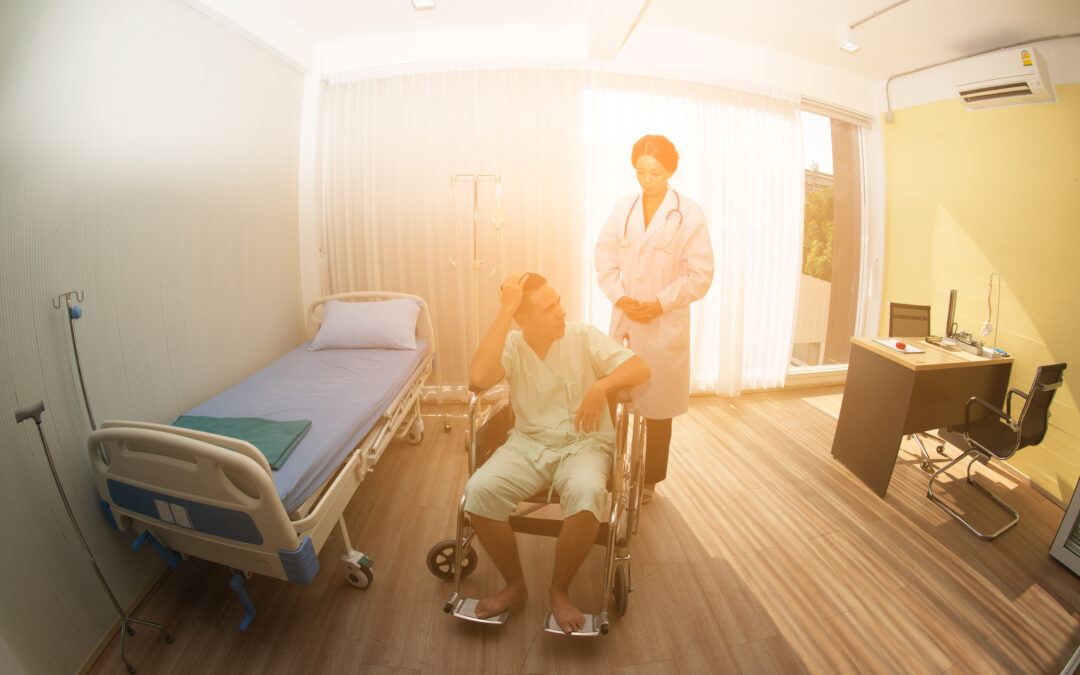Nursing Homes are Failing to Report Falls and Bedsores:
A recent study shows that nursing homes are underreporting serious falls and bedsores, top indicators of nursing home malpractice.
According to a U.S. News & World Report article, a study indicates that U.S. nursing homes are failing to report a large percentage of bed sores and nursing home falls, which is skewing public data on nursing home performance and nursing home malpractice. The false data impairs the ability for people to choose quality nursing homes. According to the article, the study further indicates that the underreporting of incidents is often motivated by race.
After studying Medicare claims data on serious nursing home hospitalizations, researchers found that about 40% of falls and 32% of bedsore hospitalizations were not reflected on Nursing Home Care Compare, a website created by the U.S. Centers for Medicare and Medicaid Services (CMS) to help people choose the best nursing home. The website relies on self-reported data from nursing homes to provide the public with information on safety, care, and issues of nursing home malpractice in U.S. nursing homes.
Accurate information on nursing home falls and pressure ulcer hospitalization is important for people choosing a nursing home, as these are two prominent indicators of nursing home malpractice in a prospective facility.
- Bed Sores—Hospitalizations for the treatment of bedsores indicate that residents’ pressure ulcers have been allowed to deteriorate into severe wounds that require surgery or other emergency attention. When bedsores develop into late stage wounds or become infected, this is an indication nursing home malpractice has occurred. Severe bed sores can be deadly, necessitating the intervention of a wrongful death attorney.
- Falls—Like bedsores, nursing home falls are often preventable and their occurrence frequently indicates nursing home malpractice has occurred. Severe falls can result in serious injuries like limb or facial fractures, extensive bruising, sprains and strains, and sometimes can even result in death, leading to the family’s need to secure a wrongful death attorney.
The study compared the CMS data against medical claims filed to medicare by hospitals seeking reimbursement for treatment for bedsores or falls. The findings not only revealed a disparity of data, but also indicated that underreporting skewed along racial lines. Emphasizing that U.S. nursing homes are frequently segregated, lead researcher and assistant professor of public health sciences at the University of Chicago Prachi Sanghavi reported that nursing homes with more white residents reported more fall injuries and fewer bedsore injuries, while reporting rates from nursing homes with more black residents showed the opposite.
The report posited that alternative methods of measuring nursing home quality outside of self-reported data ought to be considered by CMS, such as objective data from Medicare and Medicaid claims. Having the most accurate information possible is crucial in choosing a nursing home, particularly since it can be complicated to change nursing homes only after discovering a home’s likelihood of committing nursing home malpractice. When choosing a nursing home, it’s prudent to use a range of sources and research methods (such as this guide) to research prospective homes for yourself or a loved one. Beyond the CMS website, the following methods are helpful in choosing a nursing home:
- Contact Your State DOH: The state Departments of Health in Pennsylvania and New Jersey make available their investigative records of every nursing home malpractice complaint in their respective states.
- Tour Prospective Homes: While a tour itself will not reveal the likelihood of nursing home malpractice, you can be alert for indicators. For example, since a top cause of nursing home malpractice is understaffing, you can use your tour to observe the number of staff members or to inquire about nurse-to-resident ratio and turnover rates.
- Contact a Nursing Home Attorney: Wrongful death and nursing home malpractice are matters highly familiar to nursing home lawyers. To learn about choosing a safe nursing home for your loved one, you should contact a trusted nursing home malpractice or wrongful death attorney.
Holding Homes Responsible for Neglect, Abuse, and Wrongful Death
Attorney Brian P. Murphy is dedicated to upholding the rights of Pennsylvania, Philadelphia, or New Jersey nursing home residents and ensuring their health and safety. As an experienced nursing home malpractice and wrongful death attorney, Brian Murphy has made it his mission to hold negligent Philadelphia/PA or NJ nursing homes accountable for preventable falls and bedsores and other incidents of nursing home malpractice. Should you find yourself needing to contact a nursing home malpractice and wrongful death attorney, or if you need guidance in choosing a nursing home, call Brian Murphy today to discuss your legal options.







